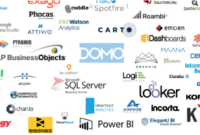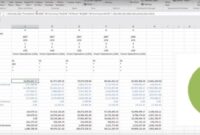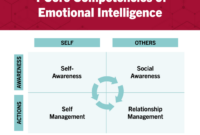How to become a business intelligence analyst – Embark on an enriching journey to becoming a Business Intelligence Analyst, a role that empowers you to transform raw data into actionable insights that drive business success.
This comprehensive guide unveils the educational requirements, technical skills, industry knowledge, and business acumen essential for thriving in this dynamic field.
How to Become a Business Intelligence Analyst
In today’s data-driven world, business intelligence analysts are in high demand. They play a crucial role in helping organizations make informed decisions by analyzing and interpreting data. If you’re interested in a career in business intelligence, here’s a comprehensive guide to get you started.
Educational Requirements

To become a business intelligence analyst, you typically need a bachelor’s degree in a field related to data analysis, such as computer science, statistics, or business analytics. Some employers may also consider candidates with a master’s degree in a related field.
- Relevant degrees: Bachelor’s or master’s degree in computer science, statistics, business analytics, or a related field.
- Certifications: Industry-recognized certifications, such as the Certified Analytics Professional (CAP) or the SAS Certified Business Intelligence Professional, can enhance your credibility.
- Online courses: Online platforms like Coursera and edX offer specialized courses in business intelligence and data analysis.
- Benefits of advanced education: Pursuing a master’s degree can provide you with a deeper understanding of data analysis techniques and business concepts, making you a more competitive candidate.
Technical Skills, How to become a business intelligence analyst
Business intelligence analysts need a strong foundation in technical skills to effectively analyze and interpret data.
- Programming languages: Proficiency in programming languages such as Python, R, or SQL is essential for data manipulation and analysis.
- Data analysis tools: Familiarity with data analysis tools like Tableau, Power BI, or Google Data Studio is crucial for visualizing and presenting data.
- Visualization software: Knowledge of visualization software like D3.js or ggplot2 allows you to create compelling data visualizations that effectively communicate insights.
- Importance of SQL and Python: SQL is the standard language for database management, while Python is widely used for data analysis and machine learning.
Summary: How To Become A Business Intelligence Analyst
As a Business Intelligence Analyst, you will possess the expertise to unlock the hidden potential of data, empowering organizations to make informed decisions, optimize operations, and gain a competitive edge.
FAQ
What is the typical educational background for a Business Intelligence Analyst?
A bachelor’s degree in a quantitative field such as mathematics, statistics, computer science, or business is generally required.
What technical skills are essential for Business Intelligence Analysts?
Proficiency in programming languages like Python and SQL, data analysis tools, and visualization software is crucial.
How can I enhance my industry knowledge as a Business Intelligence Analyst?
Seek experience in key industries where business intelligence is in high demand, such as finance, healthcare, or retail.



